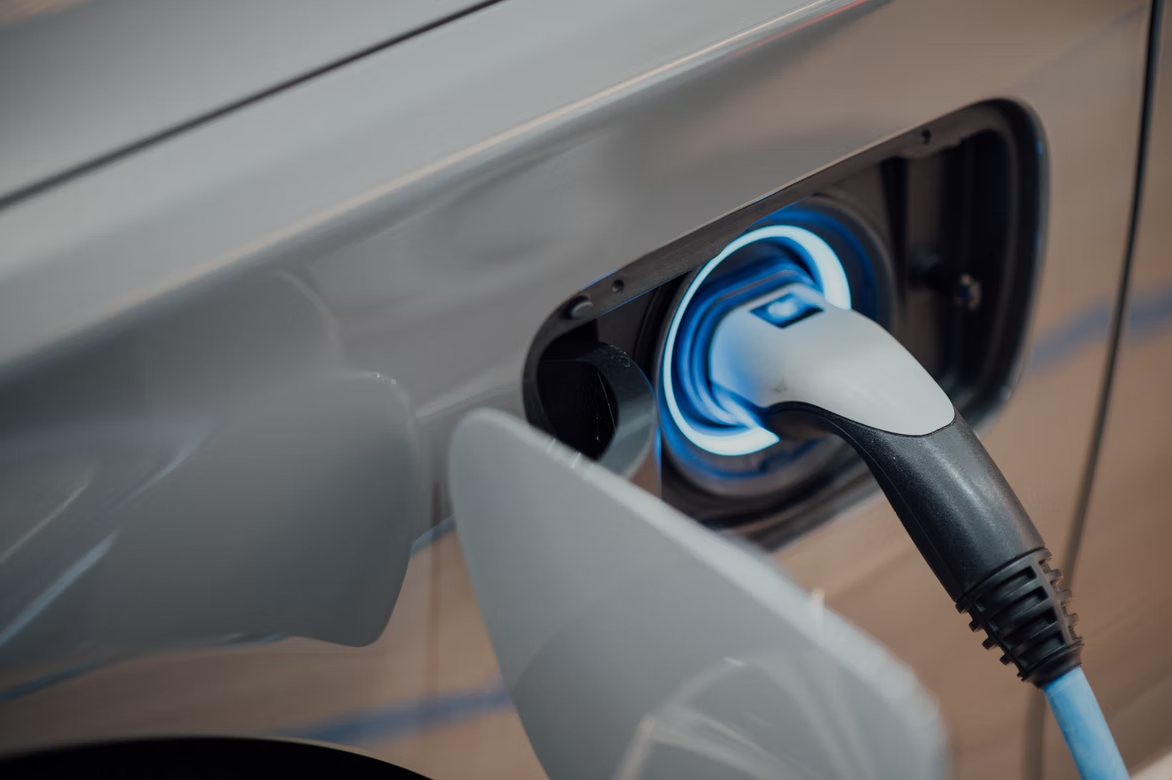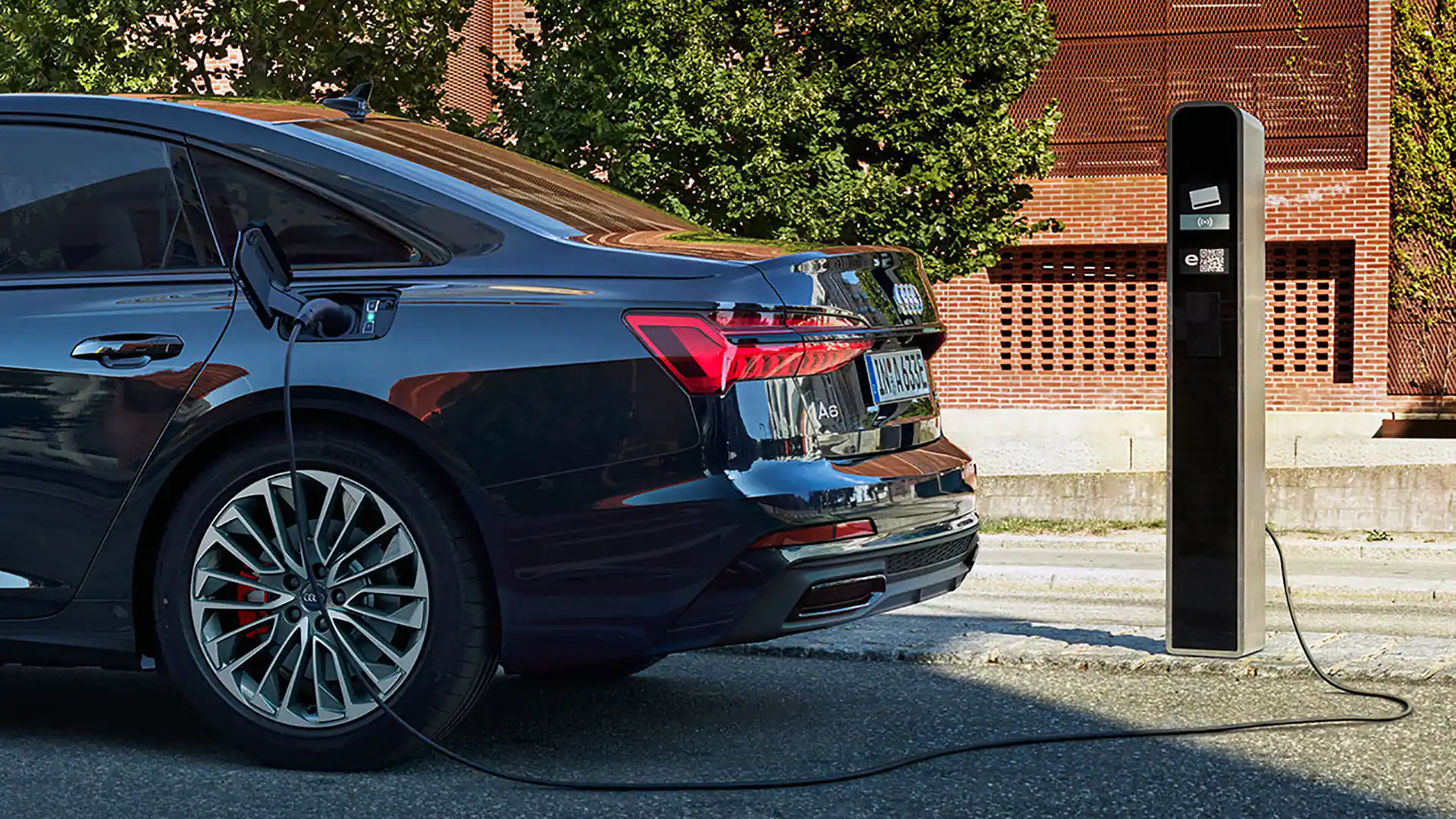What are the options for charging your EV?
There are several options for EV charging, including charging at home and using public charging points. Another option is workplace charging, allowing people with electric and hybrid vehicles to charge using charging points provided by their employer. This is made easier for businesses with the Workplace Charging Scheme, which allows organisations to get support towards the cost of installing EV chargers. Businesses can choose from a range of charging point products and there are some additional schemes that can help with funding.
Charging Your EV at Work
If you're an employee or business owner, you might be able to charge your electric vehicle at work. Business owners can choose to have EV charging stations installed for staff, offering a convenient way to charge their vehicles while they're working.
If your workplace doesn’t currently offer EV Charging, why not propose all the benefits?
Some of the reasons it could be great for employers to install workplace EV charging stations include:
- A convenient perk for existing employees and a great incentive when recruiting a new member of the team.
- Encourage greener living by making EV ownership easier
- Easily charge your EV Fleet
- Government grants are now available for small businesses to help them buy EV’s for their employees.
Workplace Charging Scheme
The Workplace Charging Scheme (WCS) is available in England, Wales, Scotland, and Northern Ireland. It's a voucher-based scheme that helps organisations to pay for the purchase and installation of EV charging points. It's open to businesses, charities, and public sector organisations that meet the eligibility criteria and can cover up to 75% of the total costs. The maximum amount is up to £350 per socket and is capped at 40 sockets across all sites per applicant.
Eligibility
There are certain eligibility criteria that need to be met by applicants to receive a voucher. The organisation needs to be a business, charity, or public sector organisation.
The organisation also needs to declare a need for EV charging equipment or an intent to encourage staff or their fleet to use EV vehicles and charge at work. Your organisation must have dedicated off-street parking for employees or your fleet to use and your parking facilities need to be on-site or a reasonable distance from the workplace. The property also needs to be owned by the business or permission from the landlord should be obtained to install EV charging equipment.
There are rules relating to linked enterprises and franchises too. These might be treated as a "single undertaking" for funding purposes.
Site eligibility
As well as having dedicated parking, there are some other eligibility criteria for the site where you want to install EV charging. The site must have a minimum power supply of 3kW for each socket, have no more than one socket for each accessible parking space, and be for fleet or staff use. If you work from home, you can receive the grant as long as your address is registered with Companies House or HMRC.
Additional Funding Schemes
There are some other funding options for workplace EV charging.
Zero Carbon World is a charity that donates free charging stations to businesses and organisations in the hotel, tourist, or leisure industry. To benefit from this, you must agree to using their recommended installers, paying for installation costs, and being the owner and maintainer of the charging station.
There is a grant for small and medium sized businesses called the EV Infostructure Grant, which gives money off the wider building, and installation work to install multiple charging points. The grant covers 75% of the cost of work up to £15,000, this includes up to £350 per chargepoint socket installed, and up to £500 per parking space enabled with the infostructure.

How to Install Workplace Charging Stations
If you want to install at least one charging point at your place of work, there are a few things you will want to do. If you're looking for funding, you can start by following the steps that are recommended by the government for the Workplace Charging Scheme.
It's recommended that you:
- Read the advice on large fleets from the Energy Saving Trust if you want to install charging for an EV fleet.
- Discuss your needs with an authorised WSC installer (the installer will claim the grant on your behalf).
- Carry out a site survey.
- Think about the needs of disabled drivers.
- Consider the maintenance needs of any installed charging points.
- Consider the cost of electricity and whether you will charge a fee for people to to use the chargers.
There is an approved list of charge points that you can have installed under the scheme to check which options are available.
Installation costs
Installing EV chargers in your workplace includes two main costs, the EV charging unit itself and the installation costs. A Type 2 7kW double-header charging unit is likely to cost around £1,000 £1,500 before the WSC grant has been applied. A 22kW unit could cost between £2,500 to £5,000 including the grant. It's a good idea to speak to a few approved installers to get a variety of quotes and a more accurate idea of how much it's going to cost.
Many of the options for installation are wall chargers, which are mounted onto walls. Others are freestanding. Wall-mounted units are typically cheaper to install; post chargers are usually more expensive because electricity needs to be routed under the ground to reach the post.
Installing workplace EV charging is beneficial for both organisations and their employees. With funding help available, it's an affordable way to make your business greener and encourage staff to make their commute to work more eco-friendly at the same time.
